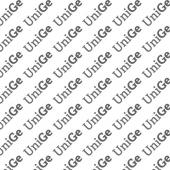Electrical Engineering Department

Description of the Department
-
Education of a Electrical Engineer
-
Research Structures
-
Employment possibilities
-
Assessment methods
-
Grading system
The Electrical Engineering Curriculum at the Faculty of Engineering devided in different section, each of them including 28 courses, in compliance with the General Study Plan, (Manifesto degli Studi) approved for each academic year.
The Curriculum is governed by the Curriculum Council (Consiglio di Corso di Laurea, CCL) formed by all professors teaching in the curriculum, who elect a Chairman (Presidente).
This Curriculum Council has the following tasks:
1) to coordinate lectures and study activities for students, so that they can obtain their degree according to the University Regulation and to prepare the timetable of courses.
2) to discuss and approve individual curricula of students;
3) to formulate proposals and opinions regarding changes of teaching regulation;
4) to submit to the Faculty Council (Consiglio di Facolt…) proposal to activate new courses or to modify the teaching of the curriculum;
5) to suggest, the utilisation of facilities, concerning Departmental units and non teaching Staff of the Departments involved, for a more efficient organisation of all teaching activities, in agreement with Department Councils.
Education of the Electrical Engineer
Electrical engineering, starting from the basic themes characterising its development in the area of energy, has gradually extended its interests, in response to increasing requirements of innovation and competition.
A constant attention to productive needs, have allowed to define the natural profile that the student of the Curriculum in Electrical Engineering requires today to become an active part of the industrial environment.
The wide field of interests, which is typical for electrical engineering, and the growing need for industrial flexibility and evolving technical know-how, have led to an education scheme for electrical engineers, that while based upon classical engineering disciplines, also includes new and interdisciplinary subjects.
After a thorough preparation in physics and mathematics, the student will tackle subject in chemistry, electronics and computer science, the student will then face studies regarding electromagnetics fields, electric and magnetics systems, electrical materials and technologies, electric energy systems, automatic controls and electrical machines and drives, power industrial electronics and computer aided design.
More specialised courses dealing with electric drives, power electronics systems, electrical system for transportation, corporate management systems, plasma and controlled fusion and industrial automation, are also provided. Several courses also make extensive use of modern computing facilities.
Research Structures
In the Electrical Engineering Department, several study and research activities, to which students can participate with exercises and degree theses, are developed.
The research activity of Electrical Engineering Department is mainly oriented towards basic disciplines like power systems, power electronics, electrical materials and technologies, computer aided design, transportation and plasma engineering. In addition to these traditional subjects, there are also some new fields of research , thanks to the acquisition and development of new electronic and computing technology of analysis and methods of simulation more sophisticated.
In the field of power electrical systems, researches concerning the control and supervision of electrical systems are promoted with particular emphasis on electrical safety aspects, quality of service and control of armonic pollution and electromagnetic compatibility. The industrial automation sector is performing research in addition to more traditional areas, control in new technologies optimisation and simulation and control tools for automation and robotic systems.
Research activities in the domain of electric transport deals mostly with conventional and high speed metropolitan railways, energy saving in the public transport, traffic simulators and environmental impact of transport electrical systems.
The main activities of the electrical material and technology laboratory, concern the characterisation of electric materials and devices, the study of degradation phenomena in electrical insulating systems, the ageing of electric and electronic materials and components, the diagnostics and the quality control.
The computer aided design laboratory performs research activity in the area of computer aided analysis of electromagnetic devices, design optimisation and integration and developments of numerical methods for the solution of field equations.
Other activities are also industrial automation, robotics, biomedical and aerospace sector, ordinary and railway electric transports, magnetic levitation, energetic exploitation of plasma and available energies, employment of superconductivity, conversion and control of big power. The above mentioned competencies are characterised by strong innovative contributions and are perfectly meeting the needs of production reality.
Employment possibilities
Traditionally, electrical engineers are mostly employed in the electrical industrial sector, but several others professional activities are possible today. Opportunities arise in manufacturing service and installation industries, in consulting or professional activities, in the public sector, in research and in teaching.
In all above sectors, electric engineers have great opportunities to develop their professional skills building on their peculiar curriculum providing a thorough background in science and engineering.
Additional employment possibilities, though limited in number are provided by Research Agencies, to access which a post-graduate qualification is available through a doctorate course taught at the University.
Assessment methods
All subjects include a final examination which can be written and/or oral: in some cases intermediate tests are possible, whose results are counted for the final one.
Grading system
The final examination is evaluated by a board of three professors, each of them has 10 marks at his disposal. The student has successfully passed his exam when he has obtained at least 18 marks. Thus the grading scale runs from 18 (pass) to 30 (best). If the student exhibited an outstanding performance, the board can unanimously award him a "lode".


